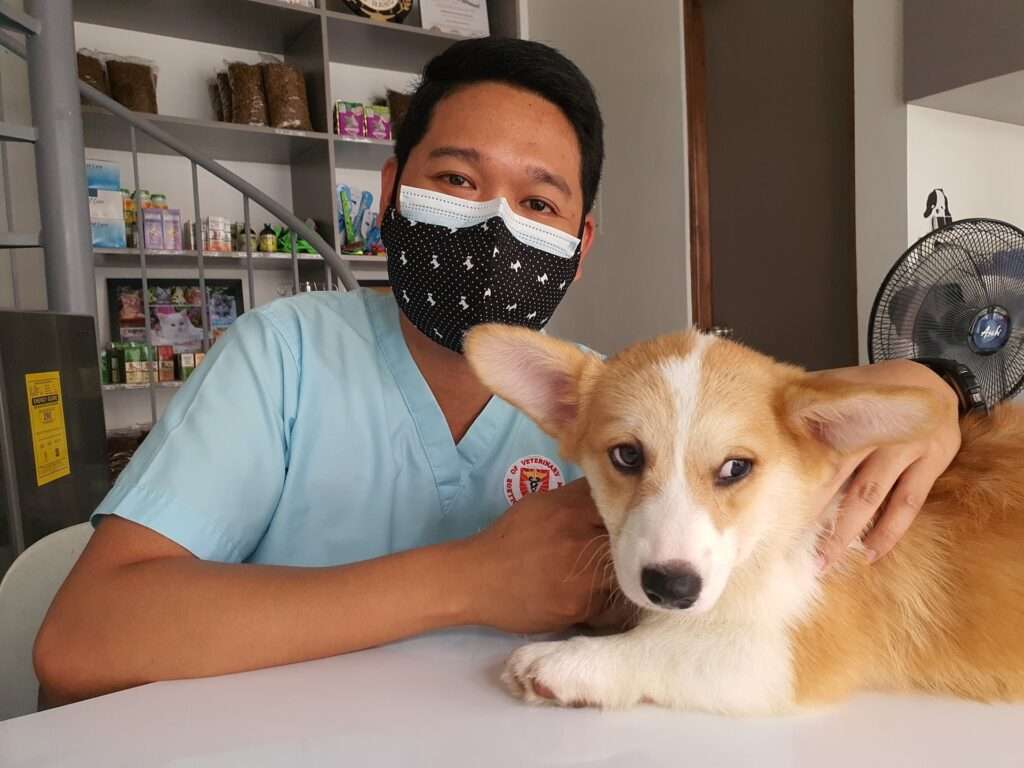How Long After Neutering Dog Is Testosterone Gone?
Welcome, fellow dog lovers! We understand that as a pet owner, you always strive to ensure the optimal health and happiness of your beloved furry friend. This means that you want to make well-informed decisions about their overall well-being.
One topic that often comes up for dog owners is neutering, a common procedure that has many benefits for your pup. But have you ever wondered how neutering affects your dog’s hormones, specifically their testosterone levels?
In this comprehensive article, we’ll dive into everything you need to know about how long after neutering a dog’s testosterone is gone. From understanding the neutering procedure to the role of testosterone in dogs, and from the timeline for testosterone reduction to the potential behavioral and health effects, we’ve got you covered. So sit back, grab a treat for your pup, and let’s get started!
What Happens During Neutering?

Neutering is a surgical procedure that involves the removal of a male dog’s testes, which are responsible for producing testosterone. The procedure is typically done under general anesthesia and involves making a small incision in the scrotum to remove the testes. While the procedure itself is relatively straightforward, it’s important to understand how it affects a dog’s reproductive organs and hormone production.
After neutering a male dog, the testes are surgically removed, which effectively stops the production of testosterone. This has several effects on a dog’s body, including the reduction of male sexual behaviors such as mounting, roaming, and urine marking. Additionally, testosterone plays a role in the growth and maintenance of certain body tissues, such as muscles and bones, so a reduction in testosterone levels can impact a dog’s physical development.
Despite these changes, it’s important to note that neutering a dog does not completely eliminate all male behaviors or traits. Some dogs may still exhibit certain behaviors or physical characteristics associated with maleness, such as a deep bark or muscular build. Additionally, neutering does not prevent a dog from experiencing sexual arousal or pleasure, although it does eliminate the ability to reproduce.
Overall, neutering is a common and beneficial procedure that can have a positive impact on a dog’s behavior, health, and longevity. By understanding how it affects a dog’s hormones, you can make informed decisions about whether or not to neuter your furry friend. In our next section, we’ll explore the role of testosterone in dogs in more detail.
The Role of Testosterone in Dogs
Testosterone is a hormone that is primarily synthesized in the testes of male dogs, although it’s also found in lower quantities in females. It plays an important role in the development and maintenance of male reproductive organs and secondary sex characteristics, such as the growth of facial hair and deepening of the voice.
In addition to these physical characteristics, testosterone also plays a role in a dog’s behavior. Dogs with higher levels of testosterone may exhibit more aggressive or dominant behaviors, such as marking territory, challenging other dogs, or exhibiting mounting behavior. This can be especially problematic for dogs that live in multi-dog households or interact with other dogs frequently.
Reducing testosterone levels through neutering can have a positive impact on a dog’s behavior, making them less likely to exhibit aggressive or dominant behaviors. It’s crucial to keep in mind that neutering doesn’t guarantee that all behavior problems will be resolved, and some dogs may still exhibit certain behaviors even after undergoing the procedure.
How Long After Neutering Dog Is Testosterone Gone?
After a male dog is neutered, it can take several weeks or even months for testosterone to fully leave their system. The timeline for testosterone reduction can vary depending on several factors, including the dog’s age, size, and overall health.
In general, the immediate effects of neutering, such as reduced male sexual behaviors and a decrease in aggressive or dominant behaviors, can be seen within a few days to a few weeks after the procedure. Nevertheless, it’s worth noting that visible changes such as decreased muscle mass or alterations in coat texture may take a longer time to become apparent after the neutering process.
It’s important to note that testosterone levels can fluctuate in the weeks and months following neutering, and some dogs may experience a temporary increase in testosterone levels before they start to decrease. This is often referred to as a “testosterone rebound” and can lead to temporary behavioral changes, such as increased aggression or mounting behavior.
Overall, it’s important to be patient and consistent with your dog after neutering, as it may take time for their hormone levels to stabilize and for any behavioral changes to become noticeable. In the following section, we’ll delve into the potential behavioral and health effects of neutering your dog, providing you with a more detailed understanding of what to expect after the procedure.
Effects of Testosterone Reduction After Neutering
Reducing testosterone levels through neutering can have a number of positive effects on a dog’s behavior and health. Here are some of the potential benefits of neutering:
- Reduced aggression: Dogs with higher levels of testosterone may exhibit more aggressive or dominant behaviors, which can be problematic for both the dog and their owner. Neutering can help reduce these behaviors and make the dog more sociable and easier to train.
- Reduced risk of certain health issues: Neutering can reduce the risk of certain health issues in male dogs, such as testicular cancer and prostate disease.
- Reduced risk of unwanted litters: Neutering eliminates the dog’s ability to reproduce, which can help prevent unwanted litters and reduce the number of dogs in shelters.
However, there are also some potential drawbacks to neutering, including:
- Increased risk of certain health issues: Neutering has been linked to an increased risk of certain health issues in dogs, such as obesity, joint problems, and some types of cancer.
- Changes in behavior: While neutering can reduce certain behaviors associated with male dogs, it can also lead to other behavioral changes, such as increased anxiety or fearfulness.
- Potential for weight gain: Neutered dogs may be more prone to weight gain, which can lead to other health issues down the line.
In general, deciding whether or not to neuter your dog is a significant choice that requires consultation with your veterinarian, who can assess your dog’s specific health and behavioral requirements.
Signs of Lingering Testosterone After Neutering
While it’s normal for a dog’s testosterone levels to fluctuate during the recovery period, some dogs may exhibit signs of lingering testosterone even after their levels have supposedly returned to normal. These signs can include increased aggression, mounting behavior, and marking.
Physical signs, such as an enlarged prostate gland, can also indicate that testosterone levels are still elevated. If a dog exhibits any of these signs, it’s important to consult with a veterinarian to rule out any underlying health issues.
Managing Hormonal Changes After Neutering
Once your dog has undergone neutering, it’s crucial to stay vigilant for any hormonal changes that may arise and take necessary steps to manage them effectively. Here are some tips for managing hormonal changes after neutering:
- Be patient: It may take several weeks or even months for your dog’s hormone levels to stabilize after neutering, so be patient and consistent with your training and behavior management.
- Provide plenty of exercise and mental stimulation: Exercise and mental stimulation can help reduce stress and anxiety in dogs, which can be especially important after neutering.
- Consider dietary changes: Neutered dogs may be more prone to weight gain, so it may be necessary to adjust their diet to prevent obesity.
- Work with a professional trainer or behaviorist: If your dog is exhibiting problematic behaviors after neutering, consider working with a professional trainer or behaviorist who can help you develop a management plan.
By being proactive and attentive to your dog’s needs after neutering, you can help ensure a smooth transition and a happy, healthy pup.
How Soon Can I Walk My Dog After Neutering?

After your dog has been neutered, it’s important to allow them plenty of rest and recovery time. While it’s normal for your dog to be a little groggy and unsteady on their feet immediately after the procedure, they should be able to walk and move around on their own within a few hours.
However, it’s important to avoid any strenuous exercise or activity for the first week or two after the procedure. This means no running, jumping, or rough play. You should also avoid taking your dog for long walks or hikes, as this can put unnecessary strain on their still-healing body.
Instead, keep your dog’s activity level low and allow them to rest as much as possible. Short, gentle walks around the block can help prevent stiffness and promote circulation, but be sure to keep these walks brief and on-leash.
As always, it’s important to consult with your veterinarian about any post-operative care instructions specific to your dog’s individual needs. They can provide guidance on when it’s safe to resume regular exercise and activity levels.
Conclusion
Neutering is a common procedure that can have a number of positive effects on a dog’s behavior and health. While it may take time for your dog’s hormone levels to stabilize after neutering, with patience and consistency, you can help manage any potential behavioral or health changes.
When it comes to medical decisions for your dog, it’s essential to seek guidance from your veterinarian to determine if neutering is the appropriate choice. By collaborating with your vet, you can make sure your furry companion receives the best possible care and outcome.
Frequently Asked Questions
How long after neutering does testosterone drop?
It typically takes about two to four weeks for testosterone levels to decrease after neutering a dog. However, it’s important to note that neutering does not instantly eliminate hormonal behavioral patterns in dogs. It may take several months for your dog’s behavior to change after neutering.
Will my dog still be able to mate after neutering?
A: No, neutering eliminates the dog’s ability to reproduce.
Will neutering my dog change his behavior?
Neutering can change a dog’s behavior in several ways. It can reduce aggressive behavior, territorial marking, and roaming behavior. However, it’s important to note that neutering does not guarantee changes in behavior, and some dogs may not experience any changes at all.
Can neutering my dog cause weight gain?
Neutering can cause weight gain in some dogs. This is because neutering can reduce a dog’s metabolism and energy levels, which can lead to an increase in appetite. However, weight gain can be prevented through proper diet and exercise.
Can neutering my dog cause health problems?
Neutering is generally a safe procedure, but it can carry some risks. Some dogs may experience complications such as infection, bleeding, or adverse reactions to anesthesia. However, these risks are relatively low, and most dogs recover quickly from the procedure.
At what age should I neuter my dog?
The best age to neuter a dog depends on several factors, including the dog’s breed, size, and health. In general, most dogs can be neutered between the ages of six and twelve months. However, it’s important to consult with a veterinarian to determine the best age to neuter your dog based on their individual needs and circumstances.
Will neutering my dog change his personality?
Neutering can change a dog’s behavior, but it typically does not change their personality. Dogs may become calmer and less aggressive after neutering, but their basic temperament and personality traits will usually remain the same.
Can neutering my dog prevent health problems?
Neutering can help prevent certain health problems in dogs, such as testicular cancer and prostate disease. It can also reduce the risk of certain behavioral problems, such as aggression and territorial marking.
How long does it take for a dog to recover from neutering?
Most dogs recover from neutering within a few days to a week. However, it’s important to restrict your dog’s activity and monitor their behavior during the recovery period to prevent complications.
Will neutering my dog make him less active?
Neutering can reduce a dog’s energy levels and metabolism, which can make them less active. However, this is not always the case, and some dogs may remain just as active after neutering.




